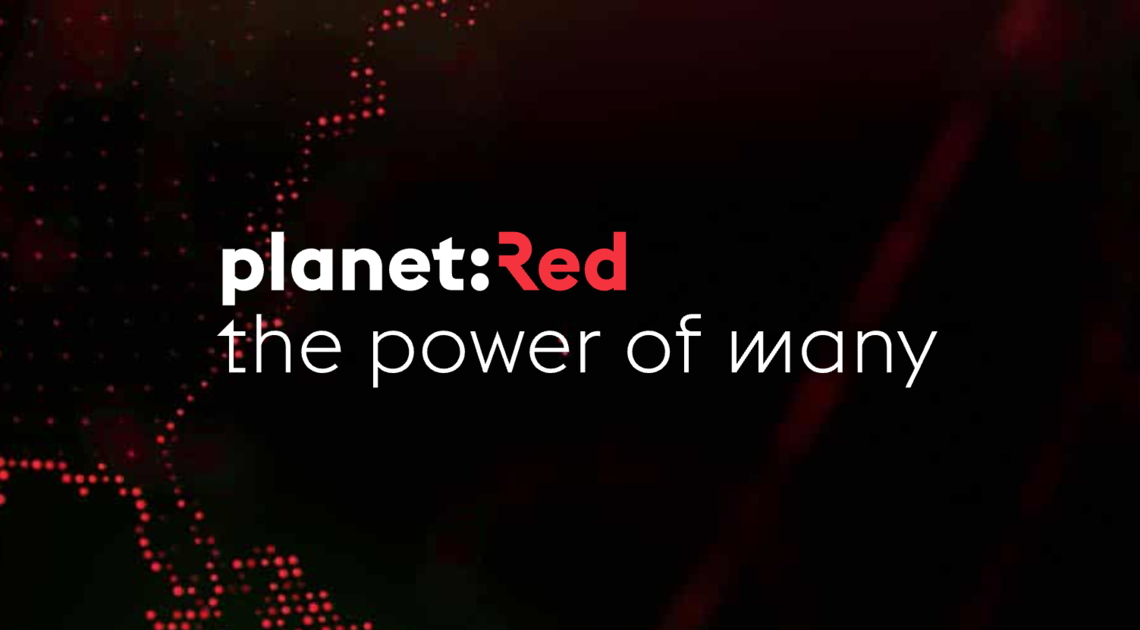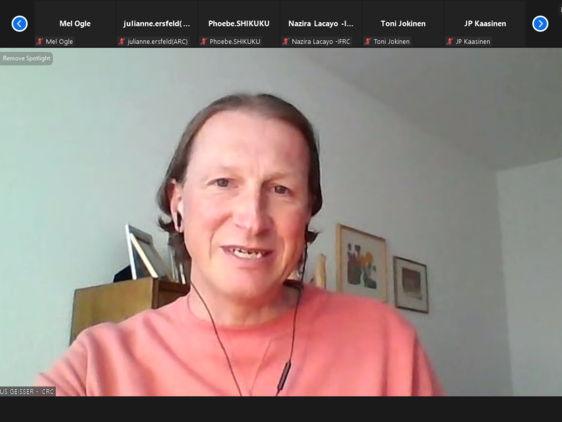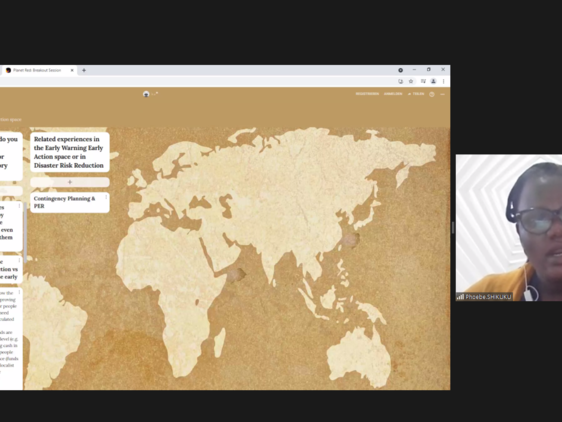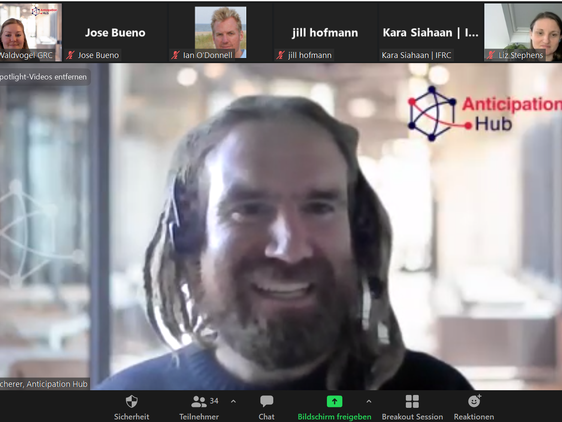
Anticipatory action at Planet:Red - The scale up challenge
The Planet:Red Summit is a Red Cross Red Crescent Movement event convened by the International Federation of Red Cross and Red Crescent Societies (IFRC) and the International Committee of the Red Cross (ICRC) between the 12th and 14th of October. The event shares experiences and showcases the power of local action to drive global impact and together, to contribute solutions that alleviate and ultimately prevent the worst human consequences of climate change and pandemics.
The Anticipation Hub together with the German Red Cross, IFRC, ICRC and the Red Cross Red Crescent Climate Centre organized a session on October 12th entitled “Anticipatory action – The scale up challenge”. This session acted as an opportunity to review the potential and importance of anticipatory action for the Movement, while providing a space to exchange experiences and highlight recent achievements helping to bring anticipatory action to scale.
Making the case for anticipatory action
Building on decades of experience in disaster risk reduction and early warning early action (EWEA), National Societies and the IFRC have been at the forefront of making use of technological progress and lessons learnt across all elements of EWEA with the development of Forecast- based Financing (FbF), an anticipatory action approach. With an increasing number of anticipatory action approaches and global initiatives gaining momentum, there is a pressing need to coordinate approaches and activities to ensure coherence, maximize impact and achieve the desired transformational change.
The relevance of anticipatory action from a climate science perspective was pointed out by Liz Stephens from the Red Cross Red Crescent Climate Centre. She highlighted scientists’ call to act on climate change since the 1960s and the need to ensure that investments in forecasting systems result in early action that supports the most vulnerable.
"We must make sure that the latest advances in forecasting science are embedded in local capacity and local mandates for action, so that the right information reaches the right people at the right time.”
Dr. Liz Stephens, Red Cross Red Crescent Climate Centre
Kara Siahaan representing IFRC highlighted the impact of climate-related disasters and shared the journey of the Red Cross Red Crescent network in implementing FbF in 30 countries. National Societies are at the frontline of these crises and IFRC is committed to scaling up anticipatory action by embedding it in their strategic planning and operations, as well as supporting the Anticipation Hub, the Risk-informed Early Action Partnership (REAP) and the Climate and Environment Charter together with ICRC.
“It is the moral imperative for us as humanitarians to act early based on the available science, capacity and resources.”
Kara Siahaan, Coordinator, Anticipatory Action and Disaster Risk Financing, IFRC
The potential for anticipatory action to tackle the double vulnerability of climate change and conflict was outlined by Markus Geisser from ICRC. He highlighted why it is “the right thing to do” and emphasized the need to work collectively to expand anticipatory approaches and ensure they are fit for purpose to serve affected people in protracted conflicts, exposed to compounding risks.
“Make anticipatory action fit for the realities of protracted conflict.”
Markus Geisser, Senior Humanitarian Policy Advisor, ICRC
In interactive breakout sessions, over 40 participants explored how National Societies are engaging in anticipatory action. Among many others, the Costa Rica Red Cross, Belize Red Cross, Columbia Red Cross and American Red Cross shared their experiences. They highlighted the importance of building awareness, enhancing coordination and creating stronger links between anticipatory action, preparedness and resilience-building.
Scaling up anticipatory action
Scaling up anticipatory action is in line with a number of relevant policies and processes within and beyond the Movement.
Kara Siahaan outlined the “Operational framework for scaling up anticipatory action” which aims to operationalize the scale-up ambition across IFRC policies and plans. It focuses on developing strategic priorities, measurable indicators, and the means to achieve the targets.
Nikolas Scherer from the German Red Cross shared the (Draft zero) Resolution "Strengthening anticipatory action in the Movement: Our way forward”, which the GRC, the IFRC, the Climate Centre & the ICRC plan to jointly propose for adoption at the 2022 Council of Delegates meeting of the Red Cross Red Crescent Movement. He explained how the resolution aims to increase commitment to capacity strengthening, expanding the anticipatory action approach to more hazards and to widen its application to overcome current and potential barriers to scaling up at the required pace.
The Anticipation Hub was presented as an important platform for the community to use to access knowledge, exchange guidance and support and collectively learn about anticipatory action across a global network of 80 partners.
Overall, this interactive and engaging session demonstrated how much has already been achieved on anticipatory action across the Movement and helped to inspire further collective action to scale-up anticipatory action.

Markus Geisser, Senior Humanitarian Policy Advisor, ICRC

Breakout session feedback with Phoebe Wafubwa, Africa Regional Office Disaster Risk Reduction & Forecast based Financing Advisor, IFRC

Moderator, Nikolas Scherer, Manager for Policy & Advocacy on Anticipation and Disaster Risk Financing, German Red Cross

Markus Geisser, Senior Humanitarian Policy Advisor, ICRC
Breakout session feedback with Phoebe Wafubwa, Africa Regional Office Disaster Risk Reduction & Forecast based Financing Advisor, IFRC
Moderator, Nikolas Scherer, Manager for Policy & Advocacy on Anticipation and Disaster Risk Financing, German Red Cross
